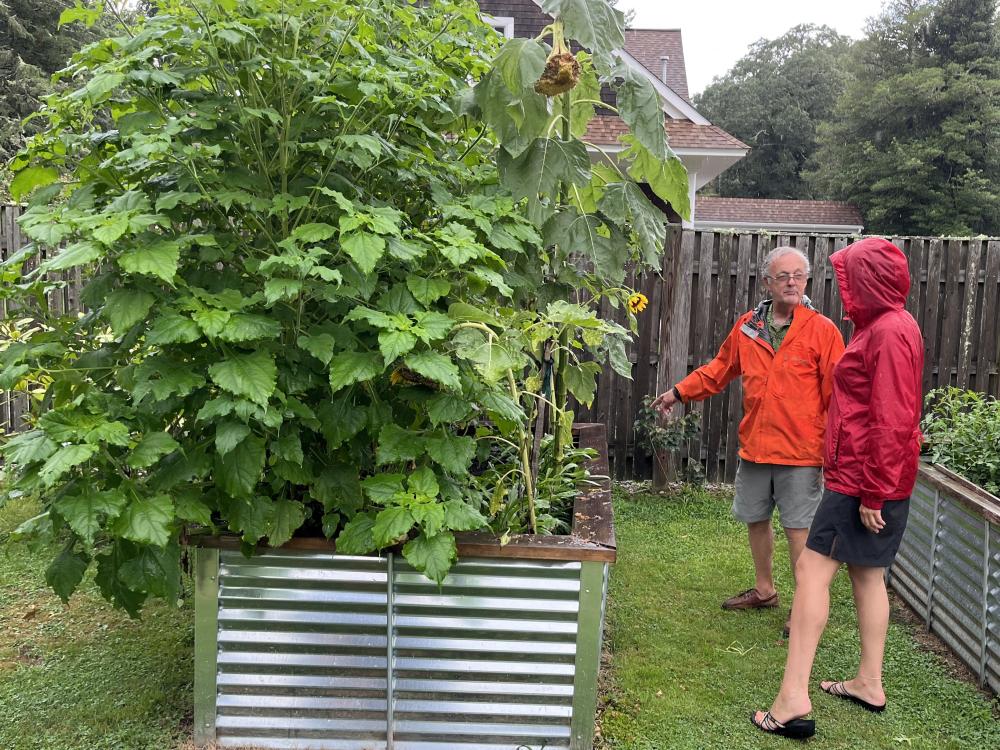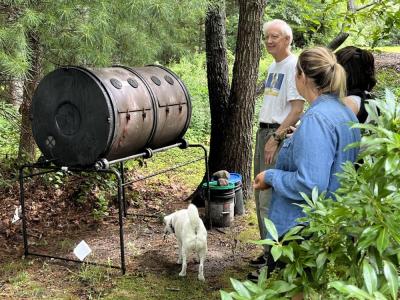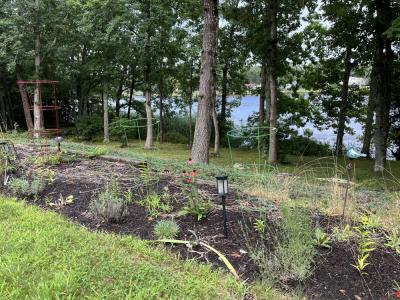Marion tour reveals ‘secret’ vegetable gardens
MARION — For the second year in a row, it rained during the event. But for a program centered on “secret” vegetable gardens, that weather might be fitting.
Community Veg Marion and Friends of the Elizabeth Taber Library organized a tour through five produce-producing gardens across town Monday, Aug. 19.
As it poured at the tour’s first stop, the 16-bed garden of Sarah Mitchell and Paul Bradley, Barbie Burr said the rain was “good for the crops.”
Burr is president of Community Veg Marion, which operates a community vegetable garden made up of allotments on a piece of previously dead land.
“Real gardeners like the rain,” she later said.
The annual vegetable garden tour began last year, and it aims to catalyze even more vegetable gardening in Marion.
“We’ve had a lot of fun with it,” Mitchell said as visitors walked through her and Bradley’s garden, which grows zucchini and lettuce among several other edible plants.
Mitchell said she and Bradley “give away a lot of vegetables.”
They began the garden four years ago.
“We love it, and it’s fun to share it,” Mitchell said.
The garden of David Giblin, who worked for Marriott for 38 years, was characterized as “a cook’s backdoor garden,” and the space grew crops like rhubarb, lettuce, peas and tomatoes.
Also present was a monkey puzzle tree — which Giblin said could grow to 60 feet “if it likes the environment” — and “bee-attracting flowers.”
“The more bees, the better,” he said.
Giblin’s garden also grew spices — like oregano for flatbread pizza or lemongrass with coconut milk for mussels.
Virtually on the bank of the Sippican River, Mark Perkins and Alice Rice’s garden stretched from near the front of their home all around the back.
Perkins said the garden doesn’t use any Marion water.
“Your plants will love you if you use rainwater,” he said.
Twenty pounds of cucumber — of multiple varieties — had grown in the garden, according to Perkins.
Another stop on the tour was Sippican School and its garden cultivated in collaboration with the Marion Institute as part of the Grow Education Program.
Nate Sander, manager of the program, said he’s been maintaining the garden through the summer, so that “things are ready” when students come back.
The garden grows cilantro, garlic, radishes and blackberries among several other crops.
“It’s been a really successful first season,” Sander said.
At the community vegetable garden on the triangle of recovered land by the Marion Council on Aging, which was also a stop during the tour, Burr said the event had been a “tremendous success.”
People love to garden “in their own style” and so the allotments at the community space will “deepen in their individuality,” according to Burr.
And all of the gardens open for visitors during the tour “were loved” by their gardeners, Burr said.
Sunnynook Farm in Rochester had also donated unsold seeds to the seed bank at Taber Library in the last week, according to Burr.
“There’s just this constant sharing” in gardening, Burr said.





















